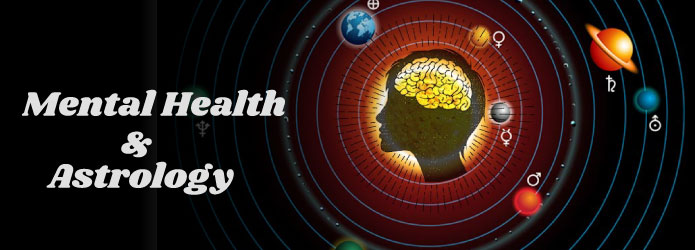
The Emperor tarot card, a prominent figure in the Major Arcana, embodies authority, power, stability, and order. As the fourth card in the tarot deck, the Emperor represents the archetypal father figure, a symbol of structure, discipline, and control. This article delves into the intricate layers of meaning associated with the Emperor card, its symbolism, astrological connections, and practical applications in everyday life. Whether you are a seasoned tarot reader or a curious beginner, this exploration of the Emperor card will enrich your understanding of its significance in tarot readings.
Before diving into the specific attributes of the Emperor card, it is essential to grasp the overall structure of the tarot deck. The tarot consists of 78 cards, divided into two main sections: the Major Arcana and the Minor Arcana.
Major Arcana: Comprised of 22 cards, the Major Arcana represents significant life lessons, spiritual growth, and profound archetypal energies. Each card tells a story and captures the essence of human experience, guiding individuals through their life journeys.
Minor Arcana: This section consists of 56 cards, divided into four suits (Cups, Pentacles, Swords, and Wands). The Minor Arcana reflects everyday situations and the smaller aspects of life, providing context and nuance to the broader themes presented by the Major Arcana.
The Emperor is the fourth card of the Major Arcana, positioned after the Empress, which represents nurturing and feminine energy. Together, they illustrate the balance of masculine and feminine principles in life.
The imagery associated with the Emperor card is rich in symbolism, reflecting its multifaceted nature. When examining the card, several elements stand out, each contributing to the overall interpretation of its meaning.
The Emperor is typically depicted seated on a grand throne adorned with rams' heads. The throne represents authority, power, and stability, serving as a symbol of his dominion over the realm. It signifies the solid foundation upon which his power rests and emphasizes the importance of structure and discipline in leadership.
In one hand, the Emperor holds a scepter, representing his authority and control. The scepter is a symbol of power, command, and leadership. In the other hand, he may hold an orb, which signifies his dominion over the material world and the responsibilities that come with it. Together, these objects illustrate the Emperor's role as a ruler who must balance power with responsibility.
Often depicted wearing armor beneath his robe, the Emperor embodies the qualities of a warrior and protector. The armor symbolizes strength, resilience, and readiness for battle, reflecting his preparedness to defend his realm and uphold justice. The robe, often colored in red, signifies passion, vitality, and the energetic force that drives him.
The mountains in the background represent stability, strength, and endurance. They serve as a reminder that true power is not only about dominance but also about standing firm in the face of challenges. The rugged landscape suggests that the Emperor's authority is built on resilience and the ability to overcome obstacles.
The rams' heads that adorn the throne symbolize the astrological sign of Aries, ruled by Mars. Aries embodies assertiveness, courage, and leadership qualities, which are central to the Emperor's character. The presence of the rams reinforces the themes of strength and determination inherent in the Emperor's role.
The Emperor card carries significant meaning when it appears in a tarot reading. Its interpretations may vary depending on the context of the reading, the position of the card, and whether it is drawn upright or reversed.
One of the primary interpretations of the Emperor card is the assertion of authority and leadership. When the Emperor appears in a reading, it often signifies a need to step into a leadership role, take control of a situation, and assert oneself. This card encourages individuals to embrace their inner leader and make decisions with confidence. It serves as a reminder that taking charge can lead to success and achievement.
The Emperor represents the importance of structure, discipline, and order in one's life. When this card appears, it may indicate that it is time to establish clear boundaries, set goals, and create a plan of action. The Emperor encourages individuals to be disciplined in their efforts, reminding them that success is built on a foundation of consistency and responsibility.
The Emperor embodies the qualities of a protective figure, often symbolizing the need for security and stability. His presence in a reading may indicate that it is essential to create a safe environment for oneself and loved ones. This card encourages individuals to take measures to ensure their well-being and that of those they care about. It reflects the importance of being strong and assertive in safeguarding what matters most.
The Emperor signifies wisdom gained through experience and a deep sense of responsibility. When he appears in a reading, it may suggest a time to act with integrity, take accountability for one's actions, and lead by example. The Emperor reminds individuals that true power comes from wisdom and a sense of duty toward others. He urges them to make decisions that benefit not only themselves but also the greater community.
While the Emperor embodies positive qualities of authority and leadership, he can also represent control and dominance when interpreted in a negative light. In certain contexts, the Emperor may suggest a tendency to be overly controlling or rigid in one's approach. It serves as a warning to avoid becoming dictatorial or oppressive in relationships or decision-making processes.
The position of the Emperor card in a tarot spread can significantly impact its interpretation. Here are some insights based on common spread placements:
When the Emperor appears in the past position, it may represent a strong authority figure or a paternal influence in your life. This card suggests that the foundation of discipline, structure, and values established in your past continues to shape your present circumstances. Reflecting on this influence can provide insights into how your experiences with authority have impacted your current approach to leadership and responsibility.
In the present position, the Emperor emphasizes the need for order and stability. It encourages you to take charge of your life, set clear goals, and make disciplined choices. The Emperor's presence suggests that now is the time to step into a leadership role, assert yourself, and create a solid foundation for your future. Embrace your inner authority and act with confidence.
When the Emperor appears in the future position, it signifies a forthcoming period of increased responsibility and leadership. This card suggests that you will face situations that require you to take charge and establish order. The Emperor encourages you to prepare for future challenges by building a solid foundation and developing your leadership skills. Embrace the qualities of the Emperor to navigate the path ahead with confidence.
When the Emperor card appears reversed in a reading, it indicates challenges related to authority, control, and discipline. The reversed Emperor carries distinct interpretations that may signal underlying issues.
A reversed Emperor may signify a loss of control or a feeling of powerlessness. It suggests that external circumstances may be overwhelming, leading to chaos and instability. This card encourages individuals to reflect on where they may have relinquished their authority or allowed others to dominate their lives. It serves as a reminder that reclaiming control is essential for personal empowerment.
The reversed Emperor can also symbolize rigidity and inflexibility in thinking and behavior. When this card appears, it may indicate that one is being overly strict or unwilling to adapt to changing circumstances. The reversed Emperor warns against becoming too set in one's ways, suggesting that flexibility and openness to new ideas are crucial for growth.
In some cases, a reversed Emperor may indicate an abuse of power or a misuse of authority. This can manifest as a controlling or dominating figure, whether it is you or someone in your life. The reversed Emperor serves as a reminder that true authority is rooted in respect and responsibility. It urges individuals to avoid dictatorial tendencies and lead with compassion.
The Emperor card is closely linked to the astrological sign of Aries and the planet Mars.
As the first sign of the zodiac, Aries embodies boldness, confidence, and the pioneering spirit. The association with Aries reinforces the Emperor's role as a leader who takes initiative and embraces challenges. Individuals influenced by Aries energy tend to be assertive, competitive, and unafraid to pursue their goals.
Mars, the planet of action, war, and ambition, governs the Emperor's energy. It represents strength, courage, and assertiveness, reflecting the Emperor's readiness to defend and protect. The influence of Mars encourages individuals to take decisive action and assert their will in the pursuit of their goals.
The Emperor card offers valuable lessons that can be applied to various aspects of life. Here are some practical applications of the Emperor's energy:
The Emperor encourages individuals to embrace leadership roles in their lives. Whether at work, in personal relationships, or within the community, stepping into a leadership position can foster growth and development. Embrace your authority, inspire others, and lead by example.
The Emperor emphasizes the importance of structure and routine in achieving success. Create clear goals and develop a plan of action to bring order to your life. Establishing routines can enhance productivity, reduce stress, and help you stay focused on your objectives.
Setting boundaries is a key lesson from the Emperor card. As you assert your authority, be mindful of the importance of creating healthy boundaries with others. Protect your time and energy by clearly communicating your limits and expectations.
The Emperor embodies responsibility and accountability. When faced with challenges, take ownership of your actions and decisions. Embrace the lessons learned from experiences, and use them to grow and evolve.
The Emperor's energy encourages resilience and strength in the face of adversity. Embrace challenges as opportunities for growth, and develop the inner strength to overcome obstacles. Resilience will empower you to navigate life's uncertainties with confidence.
The Emperor tarot card serves as a powerful symbol of authority, structure, and masculine energy. He reminds us of the importance of responsibility, resilience, and the balance of power in our lives. By embracing the teachings of the Emperor, we can cultivate stability, confidence, and a strong foundation for personal and collective growth.

Many festivals are celebrated in India and Shardiya Navratri festival has a great historical background....

The mind is represented by moon, its placement, condition and afflictions in the birth chart. ...

Sawan Shivratri 2022 - Holy month of Sawan is going on. This month, Shivaratri is considered special....

Tirupati Balaji Temple is one of the richest temples located in Andhra Pradesh....